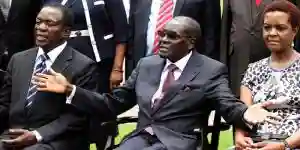Afrobarometer’s 8th round of surveys on public attitudes regarding democracy and governance conducted in Zimbabwe suggests that two-thirds of participants in the survey believe that the country is going in the wrong direction.
The research network says seventy-two per cent (72%) describe the economic situation as bad while sixty-two per cent (62%) of Zimbabweans say their personal living conditions are bad.
Only thirty-five per cent (35%) were optimistic that the country would be better in 12 months, which leaves nearly two-thirds of the population in the hopeless category.
Overall, participants rated government performance as bad with job creation topping the list of underperformances at 91% followed by failure to maintain price stability supported by 78% of the people.
69% do not think the government is managing the economy well while 77% say the government is failing to address the needs of young people.
Alex Tawanda Magaisa argues that these statistics demonstrate the dire social and economic situation in the country and the lack of confidence in the current government.
He further opines that most Zimbabweans expected President Emmerson Mnangagwa, who rose to power in November 2017 through a military assisted transition, to turn around the country’s fortunes.
Magaisa, a former chief of staff in the office of the late former Prime Minister, Morgan Tsvangirai, also believes that a low rating by 72% “is a vote of no confidence in the regime.” He added:
_The bleak public opinion is backed by indicators relating to the levels of poverty in the country. Afrobarometer found that 87% of the people went without cash income several times or always over the previous 12 months. People in the rural areas were the most affected with 91% saying they had experienced this problem while 79% of urban residents were impacted. A lot of citizens complained of severe shortages of basic commodities and services. For example, 52% went without food several times over the past year while 51% complained of a shortage of clean water. Most of those who complained of lack of clean water were urban residents (62%). 55% had gone without medical care several times._
Magaisa also said although the COVID-19 pandemic has exacerbated the problem, the lack of cash income reflects an ongoing problem that existed long before the current challenges.
He strongly believes that the higher levels of poverty make the population more vulnerable to political opportunists adding that the ruling party has for years weaponized poverty as an electioneering tool.

